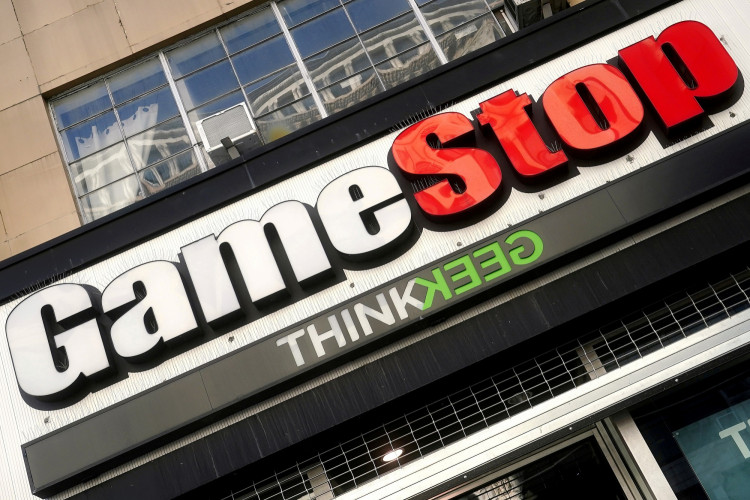GameStop, the video game retailer that became the poster child of the 2021 meme stock frenzy, is once again in the spotlight. Despite reporting a surprising profit in its latest quarter, the company's stock took a significant hit, falling 10% in premarket trading. The sharp drop comes as investors express concerns over a steep decline in revenue and lingering doubts about the company's long-term viability.
In its most recent earnings report, GameStop revealed that its quarterly revenue had plummeted by 31%, dropping from $1.164 billion to $798 million. This decline overshadowed the positive news that the company had swung to a net income of $14.8 million, a marked improvement from a $2.8 million loss in the same period last year. The profit was achieved through aggressive cost-cutting measures, including layoffs, store closures, and the reduction of general and administrative expenses, which fell to $270.8 million from $322.5 million a year ago.
Despite these efforts, investors remain skeptical about GameStop's ability to sustain profitability and revitalize its business. The company's announcement that it plans to close more stores in the near future-potentially a larger number than in previous years-fueled concerns that the retailer is struggling to adapt to the rapidly changing retail landscape.
"GameStop's stock has been a roller-coaster ride for investors, and this latest earnings report does little to inspire confidence," said Matthew Tuttle, CEO of Tuttle Capital Management. "While the company has made progress in cutting costs and achieving profitability, the significant drop in revenue raises serious questions about its ability to stay relevant in a highly competitive market."
GameStop's financial struggles are not new. The company has been battling declining sales and profitability for years, a situation that culminated in its dramatic stock price surge during the 2021 "short-squeeze" event. Driven by retail investors on platforms like Reddit, GameStop's stock skyrocketed from about $10 to nearly $121 in January 2021 before crashing back down by 90% the following month. The stock has since remained volatile, with its value fluctuating wildly based on market sentiment and speculative trading.
This week's stock decline follows a series of strategic shifts by GameStop's management, including a renewed focus on streamlining operations and improving customer service. The company's CEO, Ryan Cohen, who took the helm after the short-squeeze frenzy, has emphasized the need to make GameStop a "fast and convenient" shopping destination. This includes increasing inventory, speeding up order fulfillment, and leveraging the brand's strong household recognition and extensive network of physical stores.
However, the reality of declining sales in core categories such as hardware, software, and collectibles continues to cast a shadow over these efforts. Hardware and accessories sales fell to $451.2 million from $597 million, while software sales dropped to $207.7 million from $397 million. Collectibles, another key revenue stream, also saw a decline, slipping to $139.4 million from $169.8 million.
GameStop's management acknowledges the challenges ahead. In a statement accompanying the earnings report, the company emphasized its commitment to long-term value creation for shareholders. "We believe these efforts are important aspects of our continued business to enable long-term value creation for our shareholders," the company said. Yet, the market's reaction to the earnings report suggests that investors are not yet convinced.
The uncertainty surrounding GameStop's future has been exacerbated by the company's recent foray into the NFT and cryptocurrency markets-an ambitious move that ultimately fell short of expectations. While these ventures were initially seen as potential growth areas, they have failed to deliver significant returns, leading to further questions about the company's strategic direction.
Despite the current challenges, GameStop's stock remains up more than 1,700% over the past five years, a testament to the enduring impact of the meme stock phenomenon. However, as the company continues to navigate a rapidly evolving retail environment, the road ahead remains uncertain.





